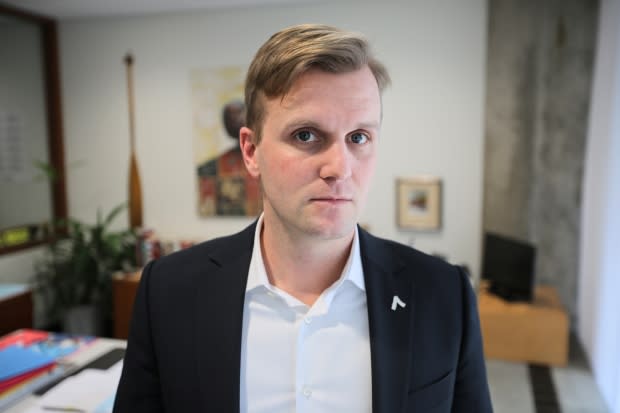Concern growing over Toronto Public Health's fate as province slashes $200M from local health units
Concern is growing over the future of Toronto Public Health following the province's decision to cut local health units and slash millions in funding, with one public health advocate deeming it a "potentially dangerous" move.
In Thursday's budget, the first for Premier Doug Ford's government, the province outlines plans to chop the number of local health units from 35 to 10 over the next two years, coupled with an annual funding reduction of $200 million.
"When you reduce the level of health services, you reduce Ontarians' health," said Toronto board of health chair Joe Cressy, who noted public health teams handle water quality testing, vaccinations, and food safety tests.
"It is potentially dangerous," Cressy said.
TPH alone has a gross operating budget of more than $250 million, with roughly three-quarters of the funding coming from the province — another element the Ford government plans to change by adjusting the provincial-municipal cost-sharing structure.
Several TPH nutrition programs that recently got council's backing were approved "subject to the confirmation" of the province's cost-sharing amount, according to the city's 2019 budget.
Both of those — the Toronto Food Policy Council, which advises the city, and Health Plus, a new program set to provide weekly food at 29 drop-in shelters — are now at risk along with all other TPH initiatives, Cressy said.
'There's zero mention of overdoses'
Cressy has now called a special board meeting for Monday to address the sweeping changes, which follow the province's controversial March decision to defund multiple Toronto safe injection sites.
Two Toronto sites wound up getting a last-minute federal exemption to stay open another month, but no longer receive provincial money, while The Works — part of a large TPH site near Yonge-Dundas Square — remains under review.
The move came as the province announced its new overdose prevention strategy, which included the approval of only 15 supervised consumption sites across Ontario.
The array of health-related cuts is "deeply concerning" to Zoë Dodd, a front-line harm reduction worker.
"There's zero mention of overdoses [in the budget] except for when they talk about cuts to the data collection system," she added.
The province frames that change as "modernizing Ontario's death investigation system with new technology to respond to emerging challenges, such as the opioid crisis," and expects it will lead to annual savings of about $3 million within the next two years.

But amid rising deaths from opioid overdoses — which have killed more than 10,300 Canadians in less than three years — Dodd said she's "appalled" at the reduction in data collection and health supports.
Mayor John Tory, speaking to reporters on Thursday night after the budget's release, stressed the need to find out more details on the province's plans, particularly as they relate to TPH.
His hope is TPH and its provincial support will both remain "intact," he added.
"I would argue the dollars that are spent on public health in Toronto ... are dollars that in fact save health-care expenditures in the rest of the health-care system," Tory said.
Dr. Eileen De Villa, Toronto's medical officer of health, is also taking a wait-and-see approach.
"We have reviewed the provincial budget and await further details from the province on the changes to public health in Ontario," she said in a statement to CBC Toronto.
"Once we receive those details we will be able to better assess the impact of these changes on the people of Toronto."
27% province-wide funding drop
Overall, the public health funding cut means an across-the-province reduction of 27 per cent, from $743 million.
The province's budget argues consolidating services would "protect what matters most by ensuring public health agencies focus their efforts on providing better, more efficient frontline care by removing back office inefficiencies through digitizing and streamlining processes."
Still, the changes are prompting concern outside Toronto as well, with Dr. Chris Mackie, medical officer of health for the Middlesex-London Health Unit, telling CBC London the new plan could put "real pressure on administrative costs, but also front-line services."
The consolidation process, he added, has to be done "very carefully if we're going to avoid significant health impacts."

